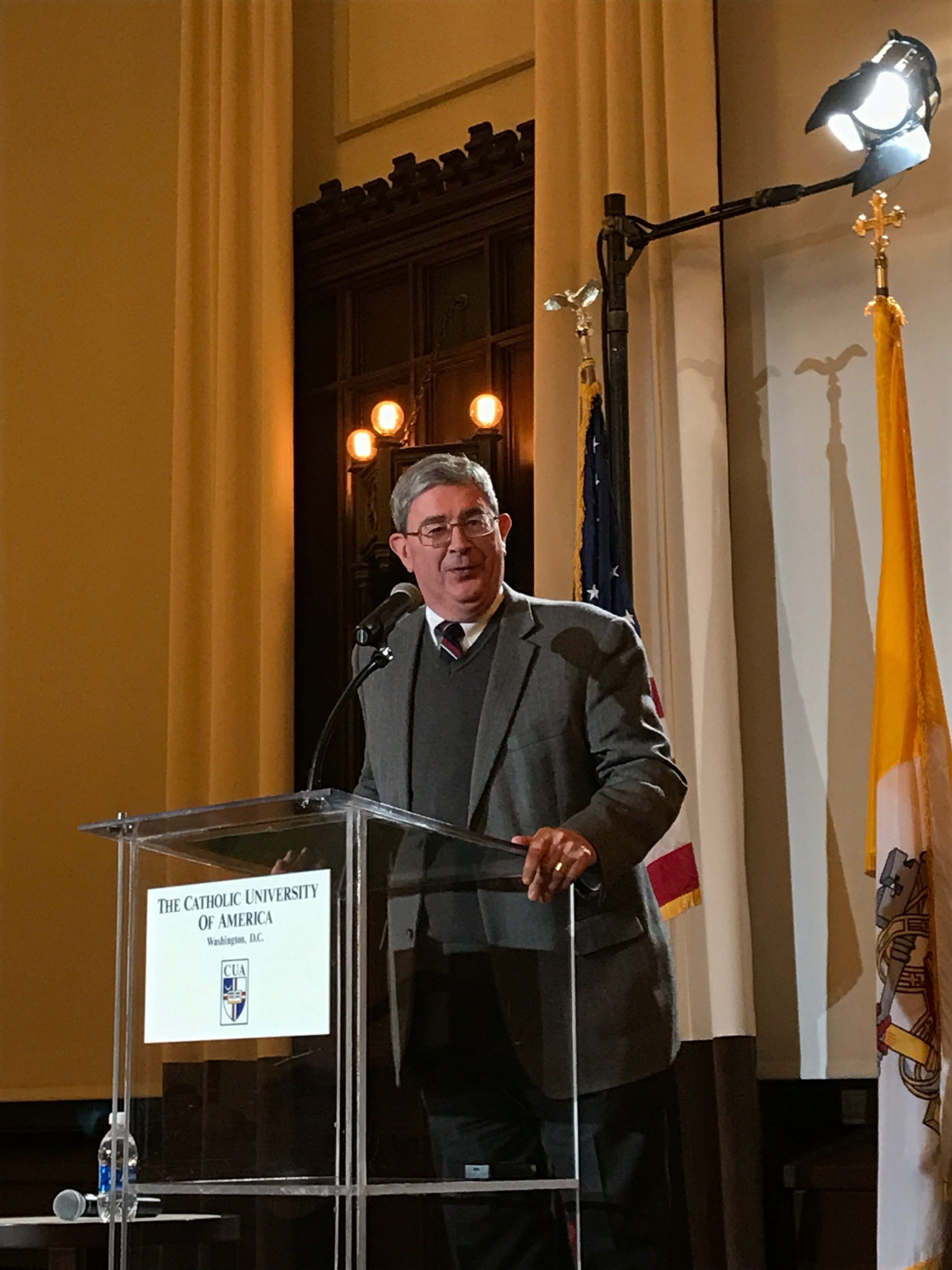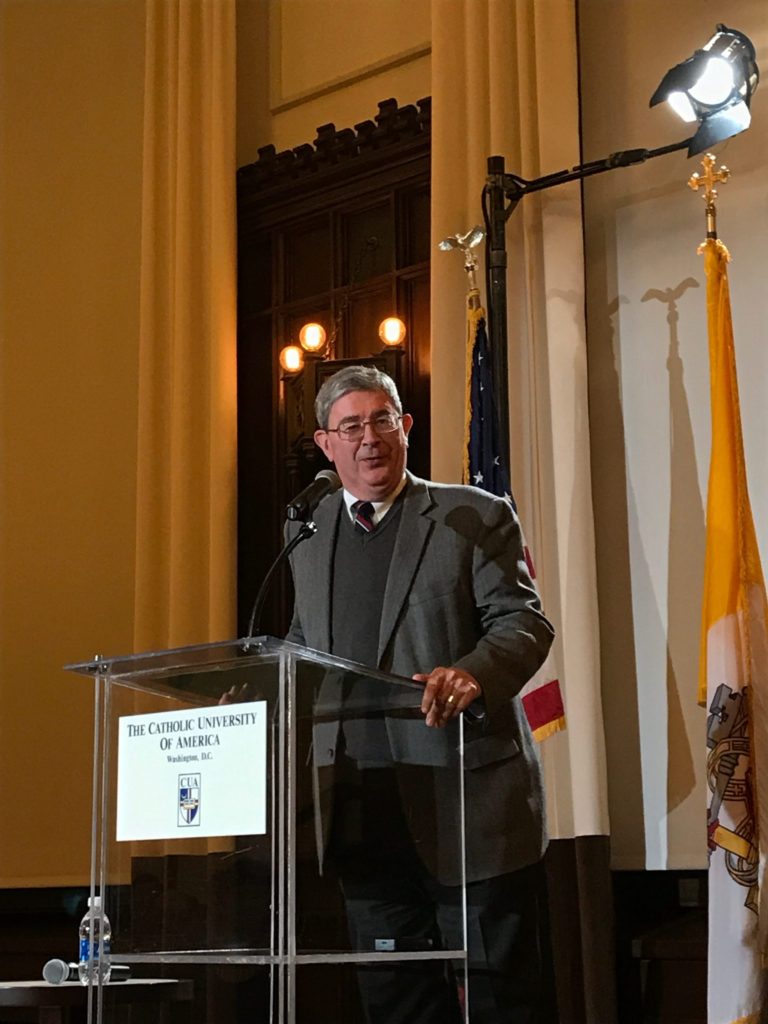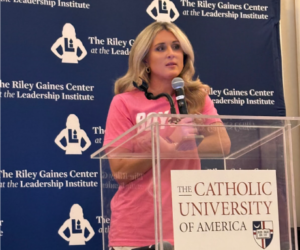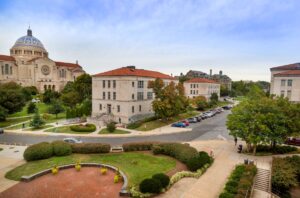Author George Weigel Shares Thoughts and Stories on Pope John Paul II in Book Q&A

Author George Weigel answers questions at Heritage Hall. Courtesy of Katie Ward

By Thomas Dompkowski
Acclaimed Catholic author and NBC News Senior Vatican Analyst George Weigel addressed a group of about one hundred students, faculty members, and visitors about his newest book on Pope St. John Paul II, Lessons in Hope. The lecture, Q&A, book signing, and reception took place on Monday, January 22nd, at 6 PM in Heritage Hall, and was sponsored by Catholic’s Institute for Human Ecology
Weigel, best known for his acclaimed biography of Pope St. John Paul II, Witness to Hope, wanted this new book to tell the stories of the saint rather than provide another analysis of his life and teachings. Weigel, however, never intended to write the book he discussed before the audience. As the pope’s biographer, Weigel became the closest of friends with John Paul II and the two had an annual Christmas dinner. On December 15th, 2004, the last dinner he shared with Pope John Paul II passed away, Weigel promised the pope that he would continue to tell his story. This book, Weigel hopes, is the fulfillment of that promise he made to the pope more than thirteen years ago.
As a completely anecdotal work, Lessons in Hope is meant to “illuminate facets of this extraordinary life.” The book itself is divided into two sections based on statements by the Holy Father. The first section of the book is organized around what Weigel calls “an extraordinarily rich interior life.” In March of 1996, Pope St. John Paul II and Weigel were discussing a book about the history of the pope’s pontificate. In a fashion Weigel described as “whimsical,” the pope said to him, “I can only be understood from the inside.”
Weigel told the audience that all of Pope John Paul II’s actions and decisions were the fruits of his powerful prayer. The pope’s bold ecclesiastical appointments and his proposal of a World Youth Day, which is attended by many Catholic University students annually, were just some of these fruits. The pope could not just be understood by looking at his actions and prayer life, so Weigel needed to seek out John Paul’s friends to fully understand the pope’s “inside.”
While the pope was a priest in Stalin-era Poland, he befriended young Catholics from his area. He took them into the mountains so they could discuss Catholicism, away from the ever-listening Communist authorities who were determined to stamp out religion from the culture of Poland. It was in this “network of friendship” that some of the pope’s major ideas and initiatives were born, some of those being Theology of the Body, the book he would later author called Love and Responsibility, and the concept of World Youth Day. Weigel summarizes, “as he formed them, they formed him.”
The second section of the book came from a statement by the Holy Father to a gathering in Fatima, Portugal, on May 13th, 1982, exactly one year after the assassination attempt in Rome which almost took the pope’s life. Pope John Paul II stated, “In the designs of providence, there are no mere coincidences.” This was a direct reference to the assassination attempt, as the Holy Father believed that one hand fired the shot, but another hand, that of the Blessed Mother, guided the bullet; if the bullet had been mere millimeters in a different direction, the pope would have died. Weigel states that the pope viewed the attempt on his life as a “facet of divine providential plan.”
Weigel closed his lecture with advice to students and the need to reject the “tyranny of the possible,” the restriction that people feel to accept the status quo.
“Trust the instincts that seem right and after you’ve prayed over them, still seem right,” Weigel said. On the topic of vocations, he tells young people not only to pray, but to seek the counsel of friends and family. He ended the evening with a question and answer portion that involved questions about the current state of the Catholic Church and the role students can play.







